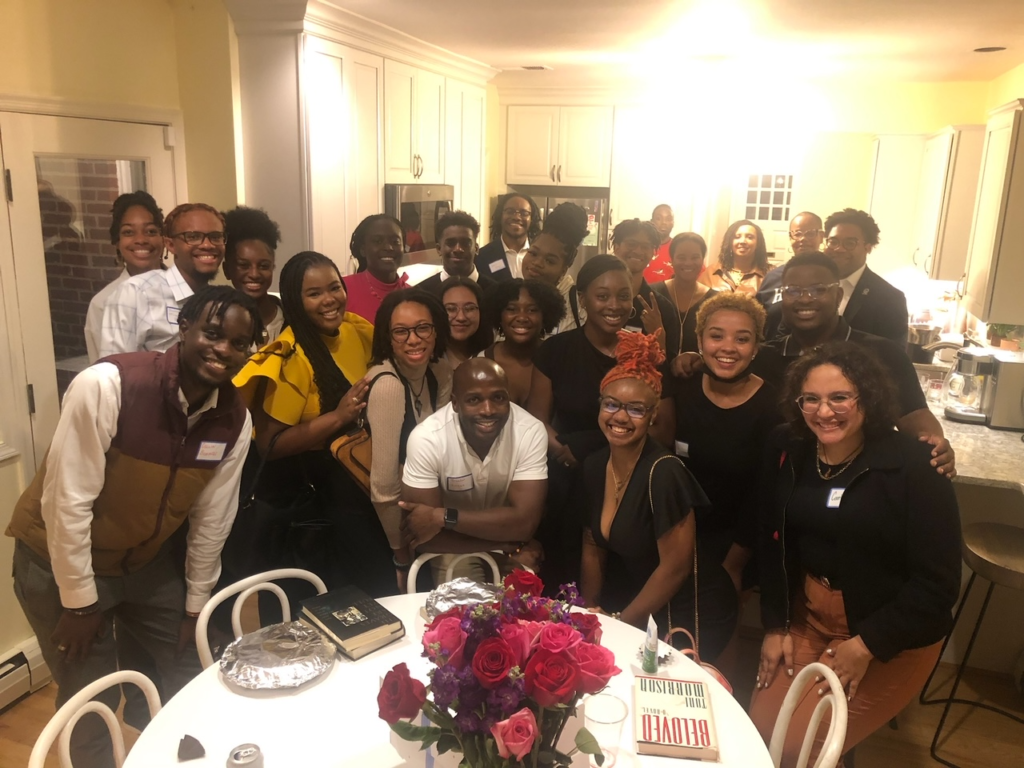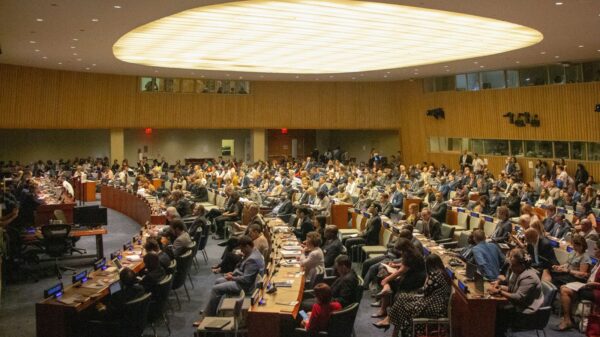
Students in the inaugural cohort of the Bachelor of Arts to Juris Doctor (B.A.-J.D.) accelerated joint degree program at Howard University are preparing for their last semester as an undergraduate student and their first semester of law school.
However, at the halfway mark of the six-year program, students are worried about what the next three years will hold due to financial issues.
While Howard University offers freshman scholarships (HUFS), which lay out four-year offers of renewable scholarships for undergraduate recipients, these offers expire after four consecutive years. Students in the five-year School of Social Work B.A.-M.S.W. program and the students in the six-year B.A.-J.D. program are the only accelerated joint degree programs that are not pre-approved to have these four-year offers extended to the length of the program.
The B.A.-J.D. program was established in 2020. The program is offered by invitation-only for incoming freshmen who are studying legal communications within the School of Communications or political science within the College of Arts and Sciences.
The joint degree program requires students to complete their bachelor’s within at least six to seven semesters. From there, students will transition into their first year of law school at the Howard University School of Law (HUSL) in what would have been their last year as an undergraduate student. Brandon Hogan, J.D., Ph.D., director of the B.A.- J.D.joint degree program, said that the program’s primary mission is to save students money on the price of undergraduate education by shaving off the last one to two semesters.
“It’s not the case that one body makes all the decisions, but this is the kind of program that was approved by a lot of different bodies. The program as it is now is not how it will be eight to ten years from now. So, we are constantly trying to figure out how to do things that are helpful,” Hogan said.
The fear of not being able to pay for the last two years of their law degree terrifies students like Obrian Rosario, a political science student matriculating through the program. This burden is what some students say has been the greatest stress in the process of completing the rigorous program.
“As a first-generation, low-income student, I have had to rise over systemic barriers and now I am facing institutional barriers as well,” Rosari said. “I was not told that my undergraduate scholarship would not be rolling over into law school until last summer… when I was already three years into the program. If I would have known this, I would have considered differently.”
Frank Tramble, the vice president and chief communications officer for the Office of University Communications, was unaware of students in the program’s requests and did not provide any further comment to The Hilltop.
Several attempts were also made to request comment from Dean Holley-Walker and Ciara J. Williams, the assistant director of Student Affairs for Experiential Learning, Scholarships and Career Readiness for the College of Arts and Sciences, but neither of them responded in time for publication.
While students are still advocating for more financial support to be added to the program, that budget request would need to be made by the dean of one of the schools associated with the program. The Hilltop reached out to the deans of the School of Communications and the College of Arts and Sciences, but they did not respond in time for publication.
Professor Ingrid Sturgis, the chair for the Department of Media, Journalism, and Film, works in the School of Communications and told The Hilltop that students should consider looking towards organizations outside of their program for scholarships that would support them through law school.
“They should reach out to law firms, the government and other companies that employ large numbers of lawyers in their field, which have lots of money to help fund a scholarship or two,” Sturgis said.
“That is not the priority of most universities, not just Howard. Most universities prioritize the undergraduate program and getting students to graduation,” she continued.
Courtney Maccubbin, a political science student and member of the cohort of the B.A.-J.D. students at Howard, expressed that her excitement about attending HUSL in the fall has been diminished because of the lack of resources available through the program.
“I don’t regret doing this program at all, but I do regret not advocating for ourselves earlier,” Maccubbin said.
Although housing, meal plans and stipends are not a part of the listed benefits, the accelerated B.A.-J.D. degree program does offer mentorship opportunities, a pre-law school summer enrichment program and pays for students to take the law school admissions test (LSAT).
Jy’Mir Starks, a legal communications major, is another member of the inaugural cohort of the B.A.-J.D. program. He shared that he and his peers have the capability and fortitude to finish the program, but want university officials to expand the benefits of the program to help future students at least have enough scholarship money to fulfill the duration of the program.
“It has been a wonderful and enriching life experience that has been plagued by antagonisms on behalf of the university. As the first cohort we have been test subjects, with the university deploying a wait and see approach,” Starks said.
Scholarships are also not offered through equivalent programs, such as the B.S.-M.D. joint degree program where students are responsible for all related expenses, including housing and meals. Students in the B.A.-J.D. program are also not guaranteed admission to the Howard University School of Law, which is also similar to the B.S.-M.D. program where a student’s admission to Howard University College of Medicine is contingent on test scores and a committee recommendation.
Copy edited by Chanice McClover-Lee













